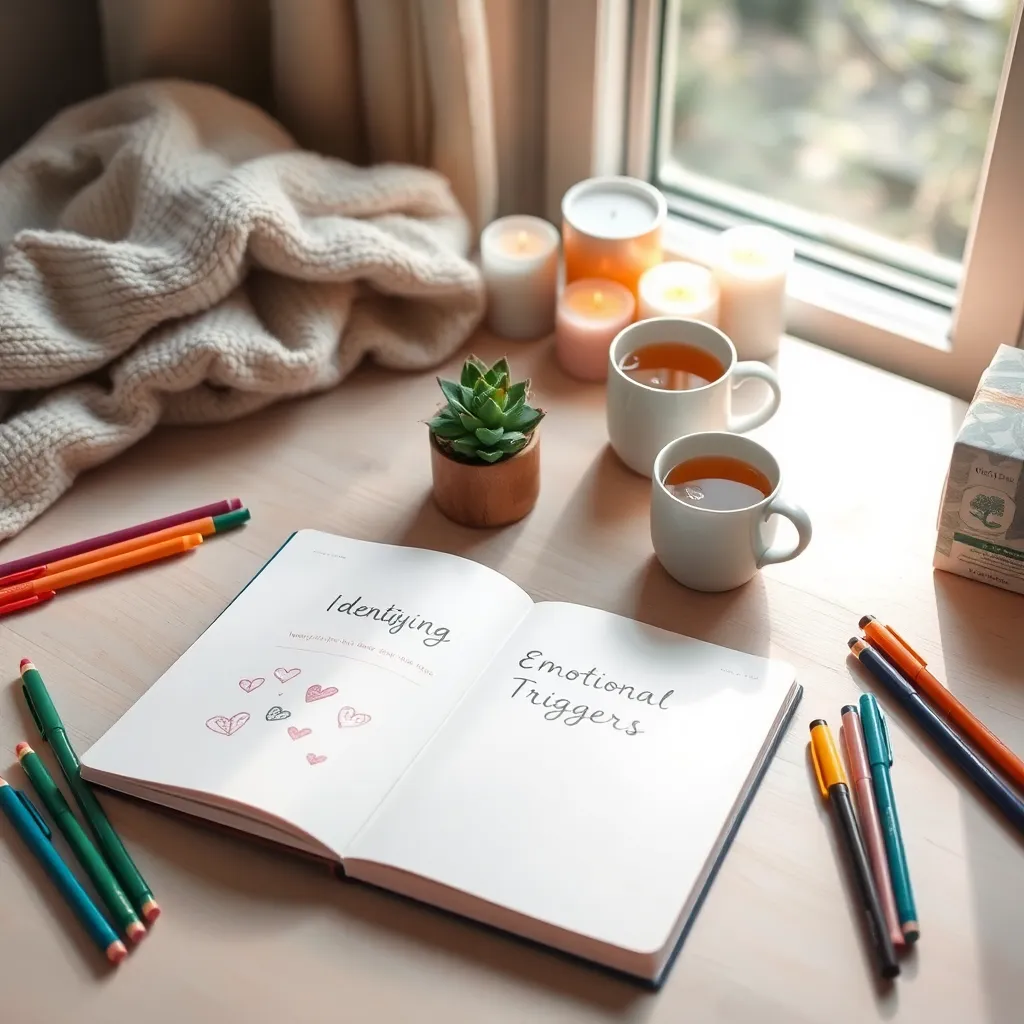In our fast-paced lives, it’s easy to overlook our emotional well-being. Regular emotional check-ins can nurture a healthier mind, fostering resilience and clarity.
Dive into a simple, effective routine that empowers you to understand and balance your emotions, leading to a more centered and joyful life.
Understanding Emotional Check-Ins

Checking in with your emotions helps ground your mind. Use simple prompts like, “What am I feeling right now?” and “What do I need today?” to guide your journaling.
Regularly exploring these questions can increase self-awareness and reduce stress.
- Identify feelings without judgment.
- Note any patterns or triggers.
This practice builds emotional resilience.
Building Your Daily Reflection Habit

Start your reflection habit by setting aside just five minutes each evening. During this time, jot down your top three emotions of the day and what triggered them. This simple practice helps you understand recurring patterns.
Consider using gratitude and intention prompts to deepen your reflection. Try writing one thing you’re grateful for and one intention for tomorrow. These prompts cultivate positivity and mindfulness, enhancing emotional well-being.
Identifying Emotional Triggers Mindfully

Recognize emotions by keeping a daily log. Each time you feel a strong emotion, jot down the situation and your response. This practice aids in spotting patterns and understanding triggers.
To delve deeper, ask yourself: “What triggered this emotion?” and “How did I react?” These prompts encourage mindful awareness and help refine emotional responses over time.
Techniques for Deep Emotional Insight

To gain deep emotional insight, try the “Why?” technique. When writing about a feeling, ask yourself “Why do I feel this?” repeatedly until you uncover root causes. This helps unravel complex emotions.
Incorporate focused prompts like:
- What is a recent event that shifted my mood?
- How did I respond emotionally, and why?
Use these to explore and understand emotional patterns effectively.
Transforming Insights into Growth

Reflect on your emotions by asking, “What lesson can I learn from today?” This prompt helps transform emotional insights into personal growth. Focus on small, actionable takeaways to nurture a healthier mind.
Engage in gratitude journaling by listing two things you appreciate about yourself. This practice shifts focus from negative emotions to self-compassion, fostering emotional resilience and growth.
Conclusion: Creating Beautiful Outdoor Spaces
In conclusion, nurturing a healthier mind through an emotional check-in routine involves five key relationship concepts: self-awareness, active listening, empathy, open communication, and consistency. Self-awareness helps us understand our feelings, while active listening ensures we genuinely hear our partner. Empathy allows us to connect deeply, open communication fosters trust, and consistency solidifies these habits into enriching routines.
To take immediate action, start by setting aside just five minutes today to reflect on your emotions and consider how they affect your interactions. This small step can significantly enhance your emotional intelligence and improve your relationships.
Remember, the journey to relationship success is ongoing. Bookmark this article as a valuable resource to revisit these essential concepts and reinforce your emotional check-in practice. Every effort you make today is an investment in a more fulfilling future with your loved ones. Empower yourself with these tools, and watch your relationships flourish, grounded in understanding and mutual respect. Your commitment to this journey is the key to unlocking deeper connections and lasting happiness in your relationships.

